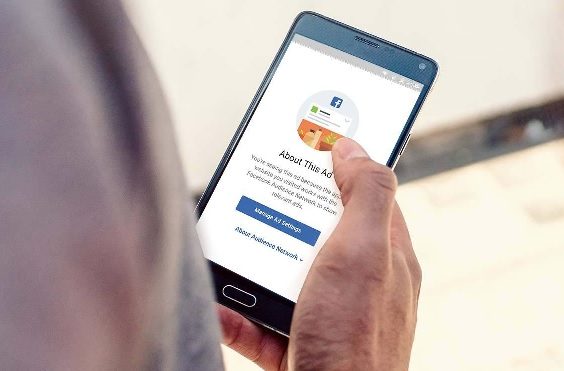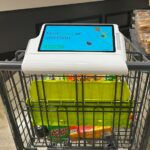Do you ever think coupons that know who you are, what you like to buy, and where you are as you walk around a store, are a little bit creepy?
Well, you haven’t seen anything yet.
Facebook is developing discounts that may give a whole new meaning to “creepy coupons”. Or, they could be very intelligent coupons that know exactly what you like and when you’re likely to use them, ensuring a much better experience for you. It all depends on how you look at it.
Facebook has revealed potential plans for its intelligent-slash-creepy coupons, in a newly-published U.S. patent application. In it, the company describes how it might implement “user-aware” coupons to hit you up with an offer for exactly what you want to buy, when you want to buy it, and where.
And how would Facebook know any of this? Because you volunteered all of the information, without even realizing it.
“Any suitable type of user actions may be tracked or monitored,” Facebook explains, including “viewing profile pages, creating or posting content, interacting with content, tagging or being tagged in images, joining groups, listing and confirming attendance at events, checking-in at locations, liking particular pages, creating pages, and performing other tasks that facilitate social action.” All of this activity can be used “to predict whether a user will perform a particular action based on the user’s interest in the action.”
To better describe its plans in plain English, the application uses the example of “Alice”, a smartphone user whose phone’s location information shows that she visits a Max Mara clothing store once a week, and remains at the store for about an hour each time. “Thus, the notification-providing system may determine that she likes Max Mara clothing, and would be interested in any sales going on.” But based on the posts and photos she uploads to Facebook, together with information from the credit card associated with her phone’s mobile wallet, the system can determine that she only actually buys clothes from the store about once a month.
So maybe she likes the clothing, but finds it too expensive. That makes her a prime target for a coupon, or a push notification about a big sale. The retailer doesn’t have to waste its time blasting out coupons to everyone – it can use Facebook’s help to target exactly the right potential customers.
But what if Alice is away from home, and unable to use a coupon right away? No problem. The system can figure that out, and wait until she’s home and ready to shop: “The notification-providing system may determine that Alice is currently on a business trip in a city that is 2,000 miles away from her home location, based on location data and her activity on the social-networking website… The notification-providing system may also determine that she is scheduled to fly back home on Friday based on her calendar and her conversations with other users.” So the system may hold off alerting her to any coupons or sales, until she gets home and is able to visit the store.
There are other reasons Alice may not be interested in a particular offer. Another example cites a hypothetical 10% off coupon at Bloomingdale’s for women’s coats and shoes. The system may determine that “the weather has been in the high 70’s in the past 3 weeks based at least in part on calendar information, local weather information, her location data, and her social-networking webpage data (e.g., her posts of how nice the weather has been, what kinds of shoes and clothes she has been wearing, etc.).” Then the system could conclude that “she may not be particularly interested in a Bloomingdale’s coupon for women’s coats and shoes” and not bother her with an offer she’s unlikely to use.
Finally, the system would be able to optimize coupon delivery to provide one to you when you’re most interested – and awake. “The notification-providing system may determine that Alice is currently within a movie theatre, based on location information,” the application reads, and that “the movie will likely end in 20 minutes based on local movie-times data.” Historical usage information from Alice’s phone shows that “she always checks her mobile device immediately after leaving a movie theatre.” So the system will know to send her a coupon good at a nearby store that she likes – in exactly 20 minutes.
The system will even know when Alice goes to bed, “based on social-networking webpage activity, location data, mobile device data and interaction with certain applications” like her phone’s alarm clock. So it won’t send her a coupon while she’s asleep – but it might send her one as soon as she wakes up.
If you sometimes feel like you’re bombarded with random coupons you’re not interested in, and can’t find coupons you can actually use, then as creepy a system as this might seem – it could actually prove useful. But if it still sounds creepy to you, then it might serve as something of a cautionary tale, about precisely how much and what type of data you’re actually sharing with Facebook and your mobile phone service provider.
Facebook hasn’t said when and whether it plans to implement this couponing system, or if it’s just in the conceptual stage. But the next time you check in somewhere, or post about where you are or what you’re doing, don’t be surprised if you suddenly get a very appealing and appropriate coupon. Because Facebook, after all, already knows what you “like”. And now coupon issuers just might, too.
Image source: Facebook














